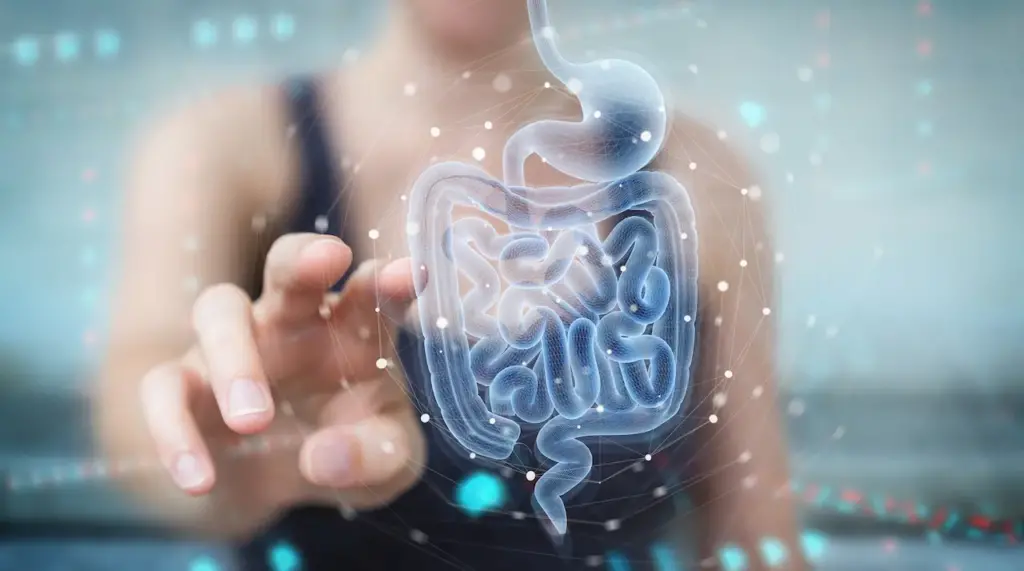Gut-Brain Axis Nutrition & Gut Microbiome
Purpose of Review: This review explores how diet affects the communication between the gut microbiome and the brain, impacting brain health and behavior. It emphasizes the need for more research on using specific diets to target the microbiome and improve brain disorders. The focus is on emerging evidence that suggests microbiome-targeted dietary approaches could offer new ways to treat brain disorders.
Gut Brain Axis Nutrition Recent Findings
- Research is increasingly focusing on using dietary interventions in randomized controlled trials (RCTs) to influence the microbiota-gut-brain axis.
- Although many studies have been small, some have shown promising results. For example, Mediterranean-like diets have helped reduce symptoms of depression, and fermented foods have improved immune function in healthy individuals.
- There are still many challenges, such as improving the quality of dietary information, designing better dietary interventions, and including behavioral outcomes in studies.
Summary: Understanding the relationship between diet, the microbiome, and brain health could revolutionize clinical nutrition and mental health treatments. New dietary interventions targeting the microbiota-gut-brain axis could help prevent and treat mental health issues, potentially leading to improved nutritional guidelines for disease prevention.

Introduction to Gut Microbiota
The gut microbiota consists of trillions of microorganisms that live in our intestines. The microbiome refers to all the genes these microorganisms possess. These bacteria play crucial roles in various bodily functions, including energy metabolism and immunity. Their influence extends beyond the gut, affecting brain function and behavior. Understanding how “feeding the microbiome” can modulate brain function and human behavior is a central question in this field.
Key Points on the Microbiota-Gut-Brain Axis
Communication Pathways
The gut microbiota communicates with the brain through various pathways influenced by diet. These pathways include neuroendocrine and immune mechanisms.
Short-Chain Fatty Acids (SCFAs)
SCFAs, such as acetate, propionate, and butyrate, are produced when gut microbes ferment dietary fibers.
SCFAs play several roles in the body, including regulating appetite and energy balance by acting on hormone-secreting cells in the gut. These hormones, like GLP-1 and PYY, influence the brain’s control of feeding behavior.
SCFAs also help maintain the integrity of the gut barrier, preventing harmful substances from entering the bloodstream and modulating immune responses.
Neuroactive Molecules
Gut bacteria produce various neuroactive molecules, such as GABA, serotonin, and dopamine. These molecules can influence brain function directly.
For example, some bacteria convert dietary precursors into active neurotransmitters, like turning glutamate into GABA or tryptophan into serotonin.

Want To Learn More? Read: L-Carnitine Side Effects
Evidence from Dietary Interventions
Mediterranean Diet
The Mediterranean diet is rich in fruits, vegetables, whole grains, and healthy fats. It has long been recognized for its health benefits, including heart health and longevity.
SMILES Trial
The SMILES trial was a 12-week study where participants with major depressive disorder followed a Mediterranean-like diet. Compared to a control group receiving social support, those on the diet showed significant improvement in depression symptoms.
Young Males Study
Another study focused on young males with clinical depression. Over 12 weeks, those following a Mediterranean diet showed decreased symptoms of depression compared to those receiving social support.
Fish Oil Supplementation
In adults with depression, combining a Mediterranean-like diet with fish oil (omega-3) supplementation improved depression symptoms more than social support alone.
These studies highlight the potential of the Mediterranean diet to improve mood and mental health. However, many did not directly measure changes in the gut microbiome, indicating a need for more comprehensive studies.
Fermented Foods
Fermented foods, like yogurt, kefir, and kombucha, are produced through microbial growth and enzymatic conversions of food components. They are known to improve gastrointestinal and metabolic health.
Healthy Participants
A study showed that a diet high in fermented foods (4-6 servings per day) increased microbiome diversity and reduced inflammation markers in healthy individuals.
Depression Patients
Another study found that daily consumption of a fermented milk beverage improved depression symptoms and reduced inflammatory markers. Interestingly, the placebo group also showed mood improvements, suggesting a potential placebo effect.
Memory and Mood
In a randomized crossover trial, consuming a kefir beverage improved memory performance but did not significantly affect mood. This indicates that fermented foods might have specific cognitive benefits.
Medical Students Under Stress
A study on medical students under stress (during exams) found that higher consumption of fermented foods was linked to lower severity of depressive and anxiety symptoms.
These findings suggest that fermented foods can positively impact brain processes through changes in the gut microbiome. However, more extensive and long-term studies are needed to confirm these effects and understand the underlying mechanisms.

Enjoying This Article And Want To Learn More? Read: Hunger and Food Cravings
Less Explored Dietary Approaches
Ketogenic Diets
Ketogenic diets, which are high in fats and low in carbohydrates, have been primarily studied for their effects on epilepsy.
Preclinical Studies
Animal studies have shown that ketogenic diets can influence the gut microbiota, which may help control seizures.
Children with Epilepsy
In children with epilepsy, those following a ketogenic diet showed changes in their gut microbiota. These changes were associated with better seizure control and increased levels of beneficial SCFAs.
These preliminary findings suggest that ketogenic diets could be explored further for their potential benefits on brain health and the gut microbiome.
Intermittent Fasting
Intermittent fasting involves alternating periods of eating and fasting. It has gained attention for weight management and metabolic health.
Ramadan Studies
Studies during Ramadan, when people fast from dawn to sunset, have shown changes in gut microbiota composition. For example, an increased abundance of beneficial bacteria and improvements in body mass index and blood glucose levels were observed.
General Intermittent Fasting
More controlled studies are needed to explore the effects of intermittent fasting on the gut microbiome and brain health. Factors like energy intake and dietary composition must be considered to isolate the effects of fasting.
Designing Diet-Microbiome-Behavior Studies
Conducting studies on diet, microbiome, and behavior involves several complexities:
Variability in the Microbiome
Each person’s microbiome is unique and can change over time. This variability makes it challenging to design studies that produce consistent results.
Dietary Assessment
Accurately assessing what people eat is difficult. Most methods rely on self-reporting, which can be biased and inaccurate. Combining self-reported data with objective measures like nutritional biomarkers can improve accuracy.
Intervention Design
Designing effective dietary interventions requires careful planning. Factors like the duration of the intervention, participants’ baseline diet, and compliance need to be considered.
Behavioral Outcomes
It’s essential to include measures of behavior and mental health in studies to understand the full impact of dietary interventions.
Approaches for Dietary Intake Assessment
Direct Methods
These include direct observation and collecting duplicate diets for analysis. Although accurate, they are costly and time-consuming.
Indirect Methods
Self-report methods like food diaries, 24-hour dietary recalls, and food frequency questionnaires (FFQs) are more commonly used due to their lower cost and burden.
Nutritional Biomarkers
Biomarkers in blood, urine, and other tissues can provide objective measures of dietary intake. They are less prone to misreporting but more expensive and complex to measure.
Designing Microbiome-Targeted Dietary Interventions
Optimal Duration
The length of dietary interventions should be sufficient to induce lasting changes in the microbiome and related health outcomes. This can vary from weeks to months.
Baseline Diet and Behavior
Assessing participants’ baseline diet and eating behavior is crucial. Interventions can then be tailored to individual needs and preferences.
Compliance and Engagement
Participants must be willing to follow the dietary changes, which may involve new foods and cooking methods. Behavioral strategies from lifestyle programs can help improve compliance.
Technological Tools
Using technology, like smartphone apps, can simplify dietary tracking and improve data accuracy. These tools can also enhance participant engagement and reduce dropout rates.
Gut Brain Axis Nutrition Conclusion
Research on the diet-microbiota-gut-brain axis is an emerging field with significant potential for improving brain health and treating mental disorders. However, much work is needed to address current limitations. Future studies should use standardized methods for dietary assessment and interventions, focusing on behavioral outcomes and leveraging technological tools for better compliance and data collection.

